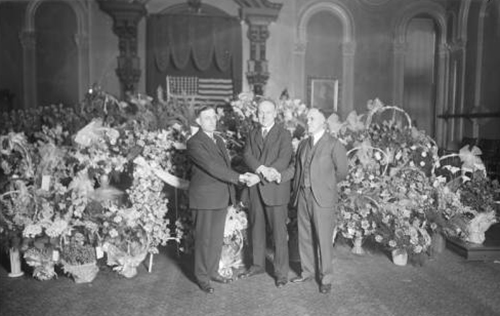
From its beginnings as an organized immigrant and ethnic community, Milwaukee’s Polish community was graced by many talented individuals who were ambitious to play important leadership roles on behalf of their Poles. These individuals could be found in four general fields of service, although these often overlapped. First, there were the clergymen who headed Milwaukee Polonia’s many Catholic parishes. Second were the individuals of Polish origin who organized the many Polish-owned business enterprises, e.g., the Kuryer Polski and the Lincoln State Bank, among others. A third group was composed of ethnic community activists, among them the many fraternalists, who took on the tasks of organizing activities that generated broad popular interest and involvement within Milwaukee Polonia. These included fund raising efforts to erect the monuments to the Polish and American Revolutionary war heroes, Kosciuszko and Pulaski, the hosting of Polish patriotic celebrations, and the work to support Poland’s independence cause in World War I. That effort included recruiting some 1,500 young men to the Polish army who served under Polish colors in France and Poland from 1918 to 1921. (The most prominent Milwaukee fraternalist to play a leadership role on the national Polonia scene was Francis X. Swietlik, who was also the Dean of the Marquette University Law School.) Fourth, ethnic activists sometimes joined other men and women to seek elective public office to serve the larger Milwaukee community, in the state capital in Madison, and in Washington, D.C. Among them were Milwaukee Judge Michael Blenski, State Senator Walter Polakowski, City Comptroller Louis Kotecki, and United States Congressmen John C. Kleczka and Thaddeus Wasielewski.
Donald E. Pienkos
Professor Emeritus, Political Science
University of Wisconsin-Milwaukee
